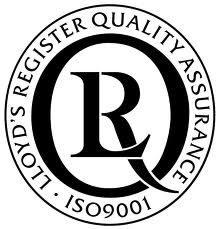Transparency and traceability vital in ensuring food safety, says LRQA
Food firms need to ensure transparency and traceability up and downstream in their supply chain to minimise risk, according to Lloyd’s Register Quality Assurance (LRQA).
Cor Groenveld, LRQA global head of Food Supply Chain Services, said certification is like eyes from the outside which can look at a food safety management system (FSMS) and see the potential challenges that could arise and if there are any weak parts in the program.
He told FoodProductionDaily.com that the food supply chain is one of the most complex there is from farm to fork because there are so many different organisations involved.
LRQA provides independent assessment services including certification, validation, verification and training across a variety of standards and schemes.
“Organisations must take responsibility for having good management systems in place as they support food safety by identifying and consulting the risks.
“The supply chain involves complex management, it is not enough to look at just your own activities, you need to look up and downstream in the chain, at all the steps and players and have systems in place that are connected.”
He said it was difficult to predict the consequence of a bad FSMS, except there is a higher risk that something can go wrong.
Food manufacturers need to know where there items such as ingredients and packaging materials are coming from and cited communication as vital for controlling their own activities and knowing those of their suppliers to ensure transparency.
LRQA has more than 400 food assessors in 55 countries using a process-based management systems approach.
Audit differences
Groenveld identified the role of a process based auditor is to look at the culture and management commitment, the attention, awareness, training and skills as well as HACCP and processes.
He described the process based standard as auditing that is not just a “tick in the box process” as they look at cultural aspects and the effectiveness of the process and the impact this has on the output.
An inspection based aduit is more checklist based, so what’s not on the checklist could be missed and lead to process problems, he added.
Groenveld, who is also the chairman of the board for the Foundation for Food Safety Certification, said food safety is in the interests of stakeholders across the supply chain to work together to ensure consumers are confident that food is safe to eat and has been produced in a sustainable manner.
“A management systems-based approach to food safety, combining harmonised global standards and consistent, robust assessment, is leading to increased consumer confidence in the global food supply chain.
“While risk is always going to be a factor in any supply chain, this approach, based on collaboration, trust, innovation, and the leadership of exemplary organisations serving the food industry, is helping to ensure that issues can be quickly identified and corrected.”
Food safety culture
A culture of food safety is a critical factor as it ensures things go well today, tomorrow and in the future, he added.
“If the organisation has a system in place for when something goes wrong and can identify it and say why and where, they can stop it going wrong again.
“It starts with the skills and knowledge of the employees, as they control the processes.”
The global food supply chain is currently moving along the maturity curve, he added.
“If we look back to 2000, when the GFSI was first formed, the food industry was largely inspection based, with organisations having their own food safety systems in place.
“Over the past 12 years, this has changed significantly, with the emphasis moving towards process-based management systems, such as ISO 22000, the international food safety management system standard and FSSC 22000, the global food safety certification scheme.”

































